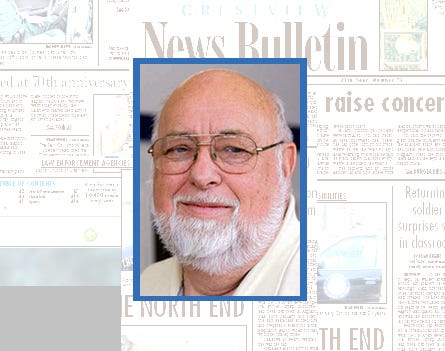
Recently, I read a newspaper article on the Bay of Pigs’ 50th anniversary.
I probably would have let this time in history pass by and never even thought about it, but then I remembered I was a part of the goings-on that were brought on by the Cuban missile crisis.
After my first four-year tour of active Air Force duty — which included pilot training and being awarded the silver wings of an Air Force pilot — I chose to leave active duty to attend college.
Two things became obvious shortly after I matriculated at Ursinus College:
•The Korean GI Bill that paid unmarried veterans $110 each month while attending classes (or $880 an academic school year) wouldn’t be enough to meet my expenses ($2,000 a year for tuition, room and board, plus books and other incidentals).
•An Air Force Reserve wing that flew C-119G aircraft was stationed at NAS Willow Grove, about 25 miles from campus. A brief visit to the unit on a Saturday afternoon found me a “slot” in the unit, and soon I was devoting two weekends and a couple of Wednesday evenings each month to learn more about the “Flying Boxcar.”
Answering the call
I received my college diploma in June 1962, and I had found employment in my hometown. All was going well until Thursday, Oct. 25, 1962, when I received a telephone call from my squadron operations officer asking if I could come in for three days of extra training. Six aircraft commanders, the status to which I had been elevated, answered the call.
Upon arrival for duty the next day, we were advised that we were to enhance our skills at low-level formation flying. We flew a mission on Friday and another on Saturday that saw us flying over New Jersey beaches, culminating in practice heavy equipment drops on the NAS Lakehurst drop zone.
We were scheduled for a similar mission on Sunday, so most pilots stayed in the barracks on Saturday. With nothing else to do, we loaded into my car to go bowling in Willow Grove, and about 11 p.m., we headed back to the naval air station.
As we headed up U. S. Route 611, with the radio in the car playing some music, an announcer interrupted the broadcast to state that the Department of the Air Force was recalling 14,000 reservists immediately to active duty! Needless to say, this changed the mood within the car, and we scurried back to base, where we found lights on in our Director of Operations’ office.
We hurried into the colonel’s office and learned that we were a part of the recall. We were to take a listing of names, find a desk with a telephone and start recalling all wing personnel, to have them report by 9 a. m. Sunday morning.
I had the “pleasure” of calling one individual’s home and being told by his mother that the one for whom I was calling had been married the day before, and that he was on his honeymoon. I extended my congratulations but made it known that I had to contact him immediately. I received his location and placed the necessary phone call. “But, I’m on my honeymoon,” stated the young airman, to which I replied, “By order of the President….”
However, I digress.
On duty
At 9 a. m., Sunday, Oct. 28, 1962, 98 percent of the wing’s membership, some who had driven some 300 miles after receiving their phone call, were in uniform and on duty.
Some three weeks later, after removing bright red paint from the wing tips and tails of all our aircraft, 80 percent of our assigned aircraft and all of our combat-ready aircrews relocated to a southern installation to conduct operations for which we had been training.
Fortunately, this training was not subsequently employed. I mention this because many people today may not know that more than a naval blockade was in effect in the fall of 1962. In addition, we should recognize the dedication of thousands of reservists in various units who face the possible disruption of family lives, separation from loved ones, and the economic impact that a reduction in income or the necessity to maintain two residences can have.
Being a reservist who meets with his or her unit one weekend each month and collects a little extra income does not face too many sacrifices. However, there is always that possibility of receiving the call on short notice, as happened on Oct. 28, 1962 — and not knowing what lies ahead.
We are rapidly approaching the “holidays,” when many reservists will be scattered around the globe, thousands of miles from home. Here’s a suggestion: drop them a card or a care package of goodies, and check in with their family who may be waiting at home, possibly suffering more than they let people know.
A care package at Thanksgiving or Christmas might be appropriate and well appreciated.
Bob Allen, a retired city councilman, is a retired Crestview resident. What's your view? Email news@crestviewbulletin.com with the subject "My view." Letters must be 250 words or less and written on local issues.
This article originally appeared on Crestview News Bulletin: MY VIEW: Send care packages to service men and women
